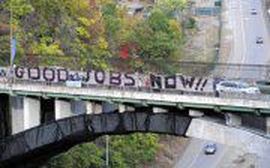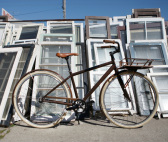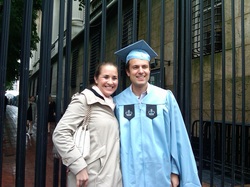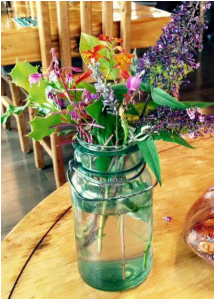
And in the US, they need work. Physically, many structures are decaying. Systemically, the works haven't yet caught up to what we need in order to protect the environment in the present and long-term. Think for a minute. Under President Eisenhower, massive work was done to create interstate highways that crossed the country - this coincided time-wise with the explosion of the automobile industry. These efforts led to massive changes in our cities and our daily lives - the birth of the suburbs and shopping centers and malls, the deaths of inner cities and mom-and-pop businesses. We are now recognizing how the reliance on roads and cars has affected us in unexpected and not-so-good ways... but that's another story for another day.
In the 21st century, we are called on to re-examine our structures and systems in terms of safety, environmental, social, and economic needs. We have the ability to collaboratively imagine how we might meet our communal needs in better ways, taking into account what we now know about pollution, the effects of degraded environments on economic, physical, and mental health, the importance of community connections and relationships for our well-being, and so on. It is a different paradigm that we must use, as we imagine and create together.
In Pittsburgh, we have wonderful opportunities to think about these issues - and to act. We need our bridges to function as an integrated city - they need work. Our sewer and water systems are ready for an overhaul. We have willing and able citizens who need jobs. We have the knowledge, skill, and experience base within our citizenry to make these changes in ways that will protect the environment and our health and well-being. Let's talk.
First, from the Pittsburgh Interfaith Impact Network comes an opportunity for people to be visible in showing both the need for jobs for citizens who really want to work AND the need for the nation to strengthen its physical infrastructure. According to PIIN, the Greenfield Bridge is structurally deficient and falling apart. Millions of unemployed people could be put to work fixing crumbling roads, bridges, and other infrastructure like this, across the country - let's urge our leaders to think about how this could be a WIN-WIN situation. Actually, let's become leaders - become part of a Participatory Democracy, as opposed to or even side by side with a Representative Democracy, speaking out directly about concerns and creating and communicating about possible solutions.
If you want to be present at an event that will involve a conversation that addresses both the jobs issue and the infrastructure needs in a positive direction, consider coming to the Day of Action on the Greenfield Bridge. Details are below:
When: Thursday, November 17 · 5:30pm - 8:30pm
Where: Gather at Magee Park, followed by a march to the Greenfield Bridge, 745 Greenfield Ave,
Pittsburgh, PA
AND.... EDUCATE YOURSELF ABOUT ANOTHER ASPECT OF THE INFRASTRUCTURE - OUR AGING SEWERS... Alcosan is currently proposing one of the most comprehensive overhauls of our sewer system that we have ever seen - it will take years to complete. The work has not yet been started, so this is the time to speak up about using what we now know about green technology to do this project right. Alcosan is holding a series of town meetings to solicit input from community members about their plans - info is available on their web-site. Tonight, there will be a town meeting on the Southside. Details:
Wednesday, November 9th, 5:30pm - 7:30pm
I.B.E.W. #5 Circuit Center & Ballroom (Region-wide)
5 Hot Metal Street | Pittsburgh, PA 15203
How fortunate we are to be able to speak up and show up in public to address situations that concern all of us. I hope to see you at one of these events!




 RSS Feed
RSS Feed
